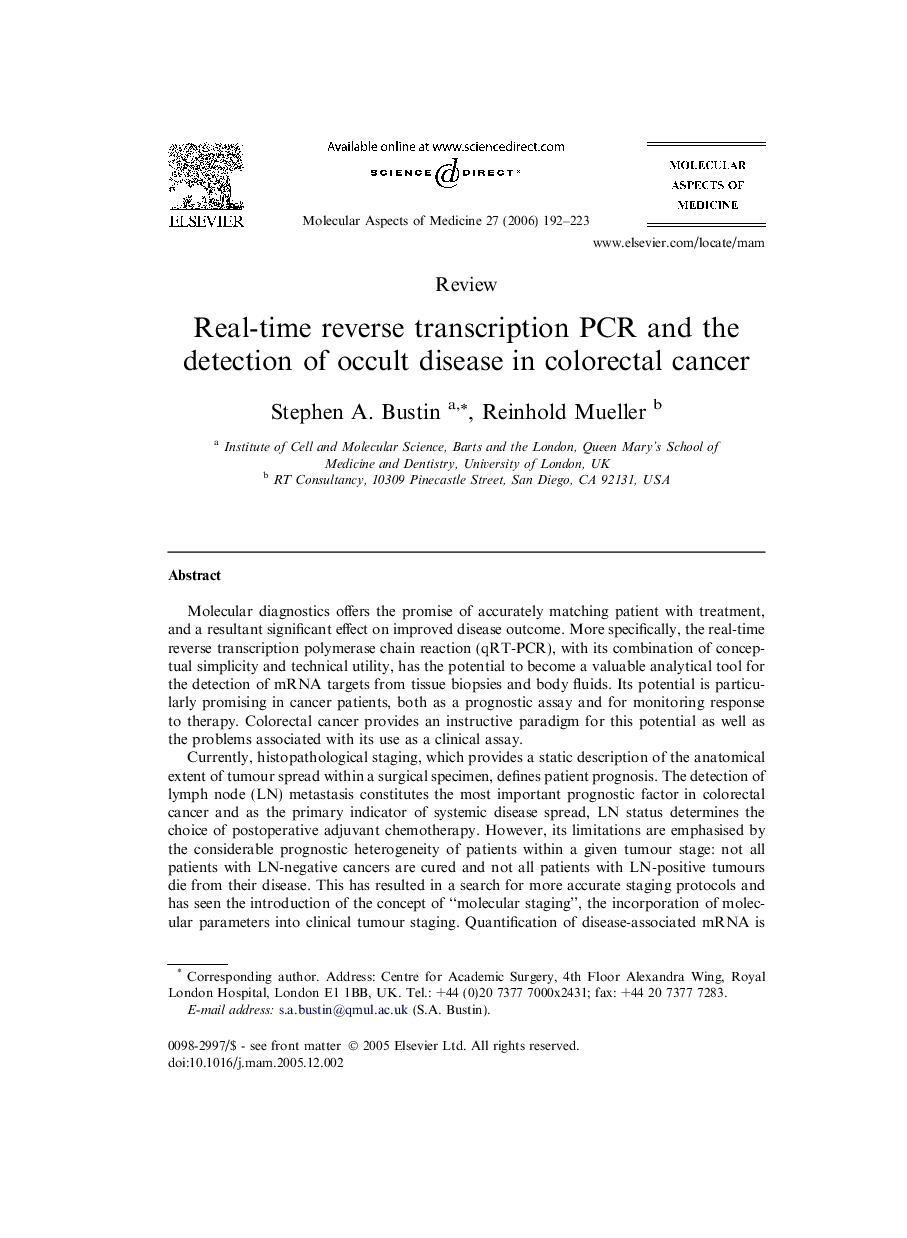| Article ID | Journal | Published Year | Pages | File Type |
|---|---|---|---|---|
| 1995980 | Molecular Aspects of Medicine | 2006 | 32 Pages |
Molecular diagnostics offers the promise of accurately matching patient with treatment, and a resultant significant effect on improved disease outcome. More specifically, the real-time reverse transcription polymerase chain reaction (qRT-PCR), with its combination of conceptual simplicity and technical utility, has the potential to become a valuable analytical tool for the detection of mRNA targets from tissue biopsies and body fluids. Its potential is particularly promising in cancer patients, both as a prognostic assay and for monitoring response to therapy. Colorectal cancer provides an instructive paradigm for this potential as well as the problems associated with its use as a clinical assay.Currently, histopathological staging, which provides a static description of the anatomical extent of tumour spread within a surgical specimen, defines patient prognosis. The detection of lymph node (LN) metastasis constitutes the most important prognostic factor in colorectal cancer and as the primary indicator of systemic disease spread, LN status determines the choice of postoperative adjuvant chemotherapy. However, its limitations are emphasised by the considerable prognostic heterogeneity of patients within a given tumour stage: not all patients with LN-negative cancers are cured and not all patients with LN-positive tumours die from their disease. This has resulted in a search for more accurate staging protocols and has seen the introduction of the concept of “molecular staging”, the incorporation of molecular parameters into clinical tumour staging. Quantification of disease-associated mRNA is one such parameter that utilises the qRT-PCR assay’s potential for generating quantitative results. These are not only more informative than qualitative data, but contribute to assay standardisation and quality management. This review provides an assessment of the practical value to the clinician of RT-PCR-based molecular diagnostics. It points out reasons for the many contradictory results encountered in the literature and concludes that there is an urgent need for standardisation at every level, starting with pre-assay sample acquisition and template preparation, assay protocols and post-assay analysis.
